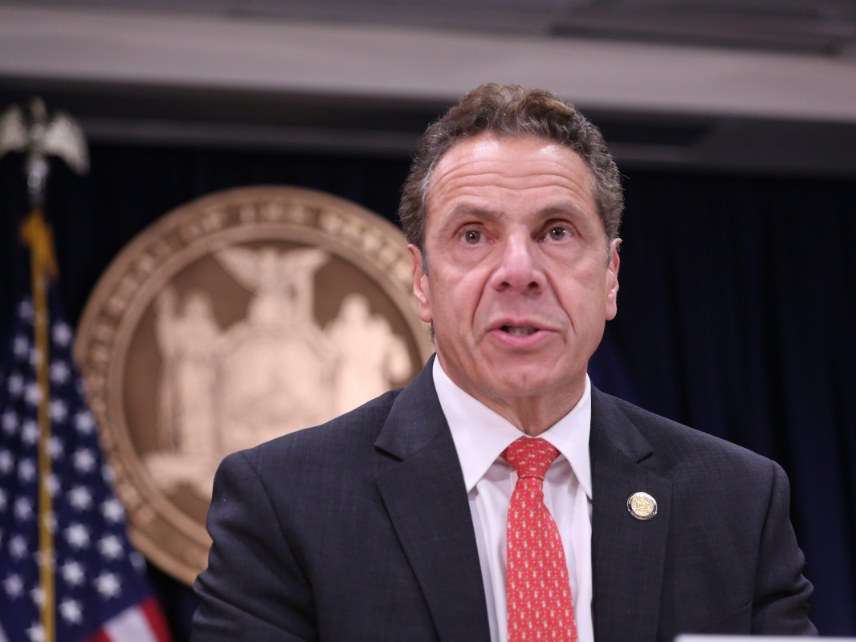New York Gov. Cuomo Proposes Positive Criminal Justice Reforms
Less pretrial jail, more forfeiture restrictions

New York Gov. Andrew Cuomo has announced a new push for criminal justice reform in his state. If he gets his way, there will be fewer unnecessary pretrial detentions, fewer delays in bringing people to trial, and tighter restrictions on civil asset forfeiture.
Cuomo announced the reform effort as part of his state of the state address yesterday.
As always, the devil will be in the details. But Cuomo's list of proposals is certainly laudable on the basics. The biggest would be to eliminate cash bail for misdemeanor and nonviolent felonies, replacing it with a pretrial system of freeing folks if they're not dangerous and keeping track of them to make sure they return to court.
In many states, a reliance on cash bail has led to an unbalanced environment where people languish in jail based on whether they can pay, not on whether they're a danger to their communities or a flight risk. The end result is that poor people charged with low-level crimes end up stuck in jail awaiting a court date. And they can end up waiting a very long time. Sometimes defendants end up pleading guilty just because they've essentially served their likely sentence while waiting for their trial. Simply being arrested for low-level crimes ends up being the equivalent of being convicted and sentenced.
New Jersey changed its pretrial system last year to all but eliminate cash bail and replace it with a risk-based assessment designed to determine who remains in jail and who is freed. This year we will see a legislative push for such a shift in California, where a similar effort stalled last year.
State-level bail reform may be the central criminal justice reform of 2018, particularly given Attorney General Jeff Sessions' lack of interest in federal reforms and given the new drug war panic sparked by opioid-related deaths.
In addition to the bail reform, Cuomo is proposing that police be banned from seizing your stuff unless you've actually been arrested. In other words, he's tackling civil asset forfeiture, where police and prosecutors are able to take and keep people's property without actually convicting you of a crime.
Disappointingly, Cuomo's proposal will not go as far as to require a conviction. But requiring an arrest will at least reduce some really abusive roadside stop forfeiture situations, where police pull a vehicle over, search it to see if the driver has lots of cash, and—if he does—declare that the driver must be involved with some sort of illegal drug activity and seize the money. Because they have no actual evidence, they don't actually arrest the suspect; they just take the cash. Then the owner has to fight in court to try to get his money back, essentially having prove his innocence.
Cuomo has also called for better disclosure of evidence between prosecutors and defense attorneys, and he wants to require that the defendants themselves (not just their lawyers) agree to waive the right to a speedy trial. He also hopes to remove some rules that ban people with criminal backgrounds from getting state licenses for various occupations outside of law enforcement fields, and he plans to stop the practice of suspending people's driver's licenses for drug convictions when the crimes did not involve driving.
The full list of Cuomo's proposed reforms can be read here. This is not the actual legislation itself, though, and he's going to have to battle police, prosecutors, and the bail bond industry to get this passed.


Show Comments (14)